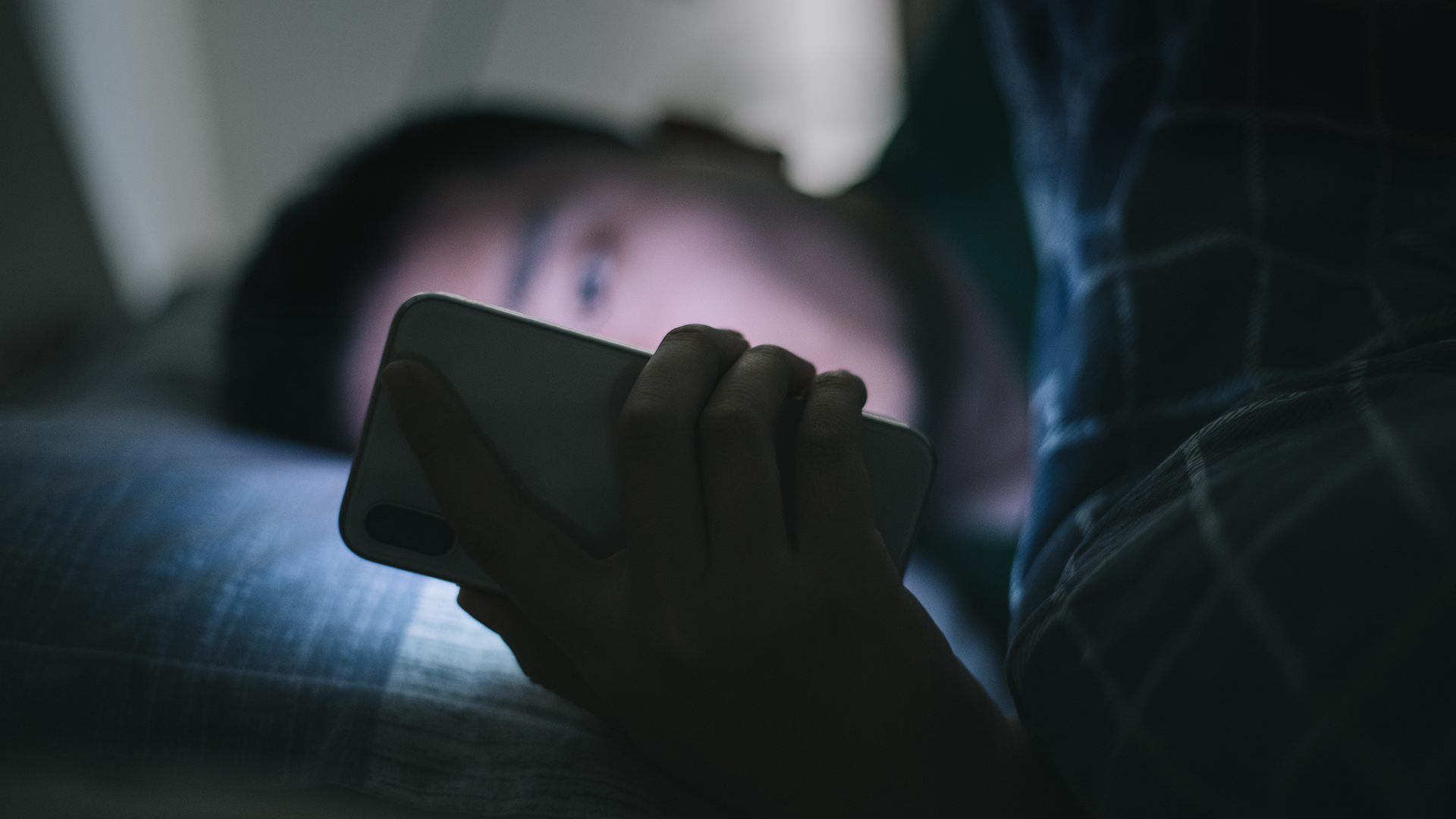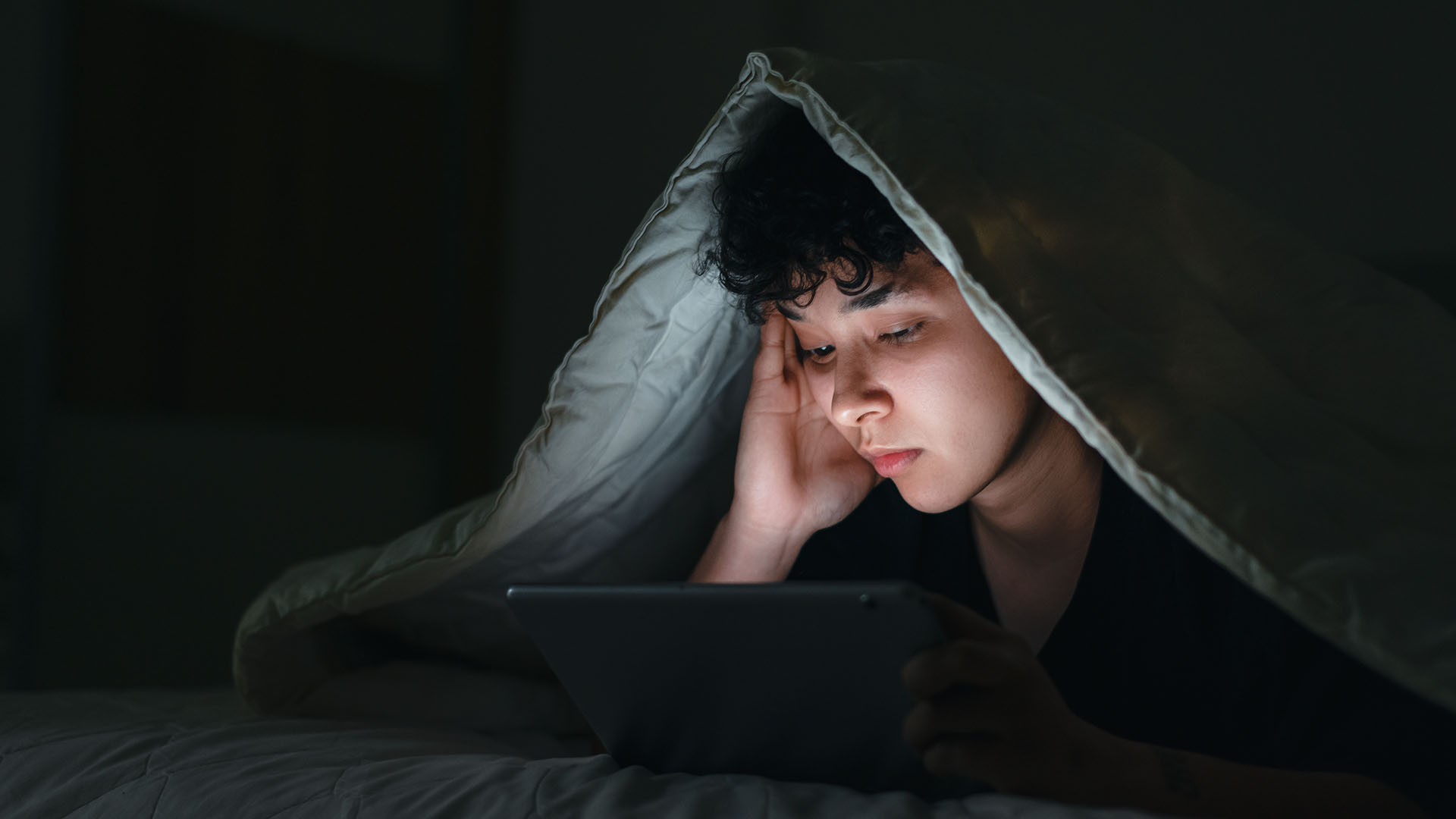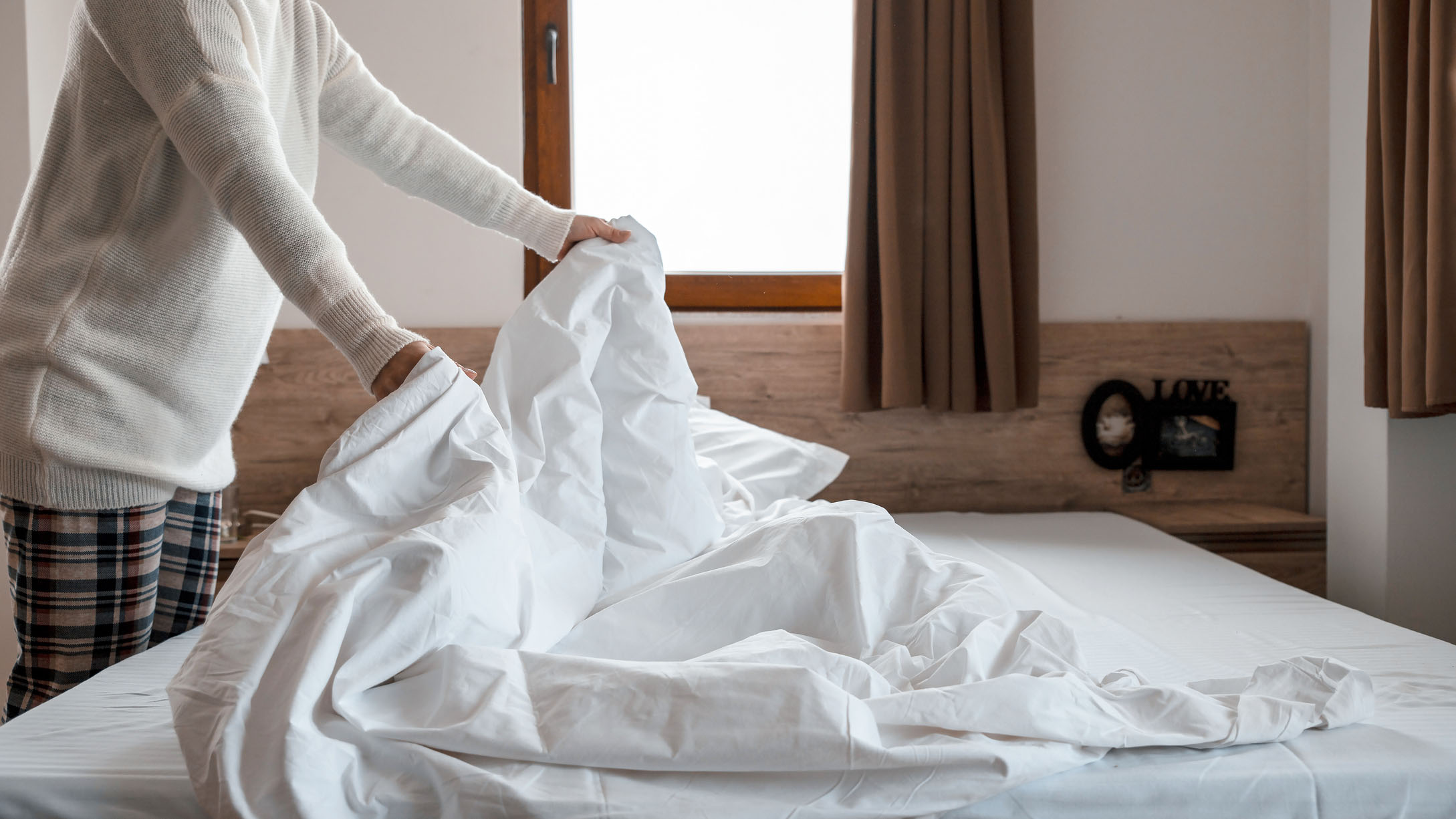
Using ear plugs to block out your partner's snoring and investing in the best mattress might be common advice for improving sleep, but more unusual nighttime trends are on the rise. People are turning to everything from lettuce water to bed rotting to enhance their rest, with TikTok now a key source for many American nighttime routines.
That's according to the Sleep Prioritization 2024 study by the American Academy of Sleep Medicine (AASM), which found over one third of Americans are using sleep hacks to drift off. However, while these hacks might be easy and intriguing, experts warn against relying on social media to construct your sleep habits.
Key takeaways from the study
- Over one third (37%) of Americans have tried a sleep hack
- 43% of men have tried a sleep hack, compared to 31% of women surveyed
- Gen Z are most likely to use a sleep hack — 55% have tried at least one
The Sleep Prioritization study was conducted by the American Academy of Sleep Medicine, with help from independent market research agency Atomik Research. During May 2024, 2,006 adults aged 18 and over were posed the question "have you tried any of these social media 'sleep trends'?".
The results show that over 37% of people have experimented with at least one type of social media trend. (The overall number might be even higher, as the survey focuses on specific trends.)
Men were slightly more likely than women to try a sleep hack, while younger people (aged 18-24) were significantly more likely to attempt a trend than those aged 65+. Bed rotting was the most popular hack of the survey, across all generations.

What are sleep hacks?
With more than one in ten Americans having received a chronic insomnia sleep diagnosis (according to a survey by the AASM), it's perhaps no surprise that so many of us are looking for ways to get more sleep.
'Sleep hacks' are social media trends that champion simple ways to get better rest, often by 'hacking' the system — taking advantage of your sleep cycle quirks over prioritizing a bedtime routine.
Most sleep hacks are eye catching and easy, a way to improve your sleep without the work of developing a complex sleep hygiene system. They also tend to be quick, so can fit into a busy lifestyle with minimal disruption to your day to day. And they tend to be quirky. Or, at least, more interesting than an early bedtime.
What sleep hacks are Americans using?
The AASM inquired after eight sleep hacks: mouth taking, interval sleeping, sleep livestreaming, watching sleep livestreams, bed rotting, the sleep girl mocktail, lettuce water, and the Scandinavian sleep method. Here's a breakdown of five of the most popular:
1. Bed rotting
Bed rotting might have an unappealing name, but this is one of the most popular sleep hacks on TikTok. It essentially refers to the practice of staying in bed to relax, unwind, and do anything other than sleep in order to refresh and reset after a long week.
We asked Maryanne Taylor, a sleep consultant from The Sleep Works, her thoughts on bed rotting. She had this to say: "Spending too much time lying in bed awake can reinforce the association between bed and wakefulness, making it harder to fall asleep in bed when we actually want to." This is one trend to avoid.
2. Scandinavian sleep method
Commonly recommended to prevent sleep divorce (when you and your partner sleep in different rooms), the Scandinavian sleep method uses two different sets of sheets for one bed.
This allows each person in the bed to personalize their sleep setup, and it can help bed sharing couples who struggle to find a bedding compromise.

3. Mouth taping
Mouth taping is an unusual sleep hack that gained popularity after taking off on TikTok. The intention is by taping your mouth shut you breath through your nose, reducing snoring and preventing bad breath.
Mouth taping has received some mixed responses from sleep experts, and it's best avoided by anyone with a blocked nose or a history of asthma or respiratory issues.
4. Sleeping in 90 minute increments
The sleep cycle describes the various phases of sleep we pass through during the night, and it's well established that waking at the end of a sleep cycle can help you fight grogginess.
This TikTok trend takes these timed wakings to the extreme, encouraging you to wake at the end of every sleep cycle — that's roughly every 90 minutes.
However, trying to time your sleep cycles is easier said than done, and focusing too much on waking up at the perfect time might lead to sleep anxiety. So while there's some logic to this hack, in practice, it probably won't benefit your sleep.
5. The sleepy girl mocktail
Mixing together tart cherry juice, magnesium powder, and sparkling water (for taste) the sleepy girl mocktail is meant to be the perfect recipe for drifting off. That's because magnesium and melatonin (found in cherry juice) are associated with sleep.
The good news is if you opt for a low sugar cherry juice, the sleepy girl mocktail is a tasty pre-bed drink that probably won't keep you awake. The bad news is, it's not quite the magic sleep formula TikTok makes it out to be.

Are sleep hacks dangerous?
'Sleep hacks' themselves aren't inherently dangerous, but there are enough hacks out there that it's hard to make a blanket statement about their safety. Some, like the Scandinavian sleep method, come with minimal risks. Others, such as mouth taping, can be dangerous if not used correctly.
Even innocuous seeming trends have the potential to cause harm. Keep in mind that while your TikTok feed can seem eerily accurate to your personality and interests, it doesn't know your medical history.
Before using any sleep hack it's important to do your research and ensure that it comes with expert approval. And that the expert in question has legitimate credentials — and not just an eye-catching username.
Should you try sleep hacks?
With 37% percent of Americans trying sleep hacks, the question might not be 'should you try them?', but 'which hacks have you attempted?'. And we're not necessarily here to advise you against them. However, we do recommend using caution and doing your research before attempting the latest TikTok sleep fad.
“Sleep problems are common and treatable; however, the right solution for the specific issue at hand is necessary,” explains Dr. Anne Marie Morse, Geisinger sleep medicine physician and spokesperson for the AASM.
At Tom's Guide, we've tried our hand at various sleep hacks, and the results are often mixed. Because while sleep hacks can help you drift off, they aren't always the correct solution for your problem — something that's difficult to determine when you're looking for advice on social media.
In addition, while scrolling for sleep hacks might seem like a good way to get better rest, your nighttime TikTok habit might be the thing that's keeping you awake. “These trends may not be inherently harmful, but it’s important to remember that the bed’s primary purpose is for sleep,” says Dr Morse.
If you're struggling with insomnia or sleep deprivation we recommend speaking to a medical professional to find the best way to treat your specific issue.







